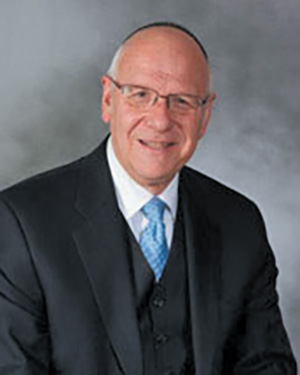
Parshat Vayishlach
The 21 pesukim that make up our haftarah this week make up the entire Sefer Ovadya as well, a book found in Trei Asar. Ovadya’s entire work, the one prophecy of his of which we know, focuses solely upon the sins of the nation of Edom and the punishment that will befall them. The choice of this selection seems to be obvious, as the first four aliyot in Parshat Vayishlach center around Yaakov’s confrontation with his brother, the founder of the Edomite nation.
And yet, upon closer analysis, we might feel that this choice was wholly inappropriate. After all, the parsha describes for us a most emotional reunion of the twins. Despite the fears of Yaakov over what might happen at this approaching meeting, and despite the seeming threat of Esav and his armed force, there was a tearful reunion of the long-separated twins. For the first time, we read of a joining of the two brothers. After learning of the different natures of the two, after reading of the dispute over the birthright and over the blessing, after studying about the revenge that Esav hopes to exact from his twin, a plan that forces Yaakov to flee for his life—after all this we finally read of the rapprochement, an emotional reunification of the Yitzchak/Rivka family.
That is what this parsha is about! Why then do Chazal choose this haftarah that focuses on the hatred of Edom against Israel instead of a selection that would highlight the reconnection of a shattered family?
I believe that our chachamim saw a message in this parsha from what was not told, and not simply what was shared. For after this seemingly heartfelt reunion, we never again hear of any communication or connection between the two brothers. The two brothers part. Amicably, but eternally. The very fact that Esav never again sees Yaakov (except when they bury their father) while Yaakov never makes an attempt to connect to Esav, tells us much about their relationship—and about how sincere the reunion truly was. And, although neither brother feared for his life from the other, the rift remained.
Given this truth, our rabbis understood the inimical relationship between the nation of Israel and that of Edom. Edom never related to Israel as a brother nation. Not when Israel asked to cross through her land nor, hundreds of years later, when she rejoiced at the destruction of Yerushalayim and the exile of Israel (see Tehillim 137: 7). It was not surprising, therefore, that Edom, in later literature, became synonymous with the Roman Empire that destroyed Bayit Sheni.
Chazal understood that true brotherhood, like true friendship, is not defined by one-time meetings or tearful reunions but of ongoing care, concern and support. A lasting relationship is built upon common values, a shared moral code and deep understanding of each other’s needs. The disagreements that tore apart the fabric of Jacob’s family, the rift between Yosef and the brothers, was not healed by the one-time emotional reunion but by the years of rebuilding the trust and understanding their common value system.
Blood may be thicker than water but only when supported by a common past…and a common destiny.
Rabbi Neil Winkler is the rabbi emeritus of the Young Israel Fort Lee and now lives in Israel.









